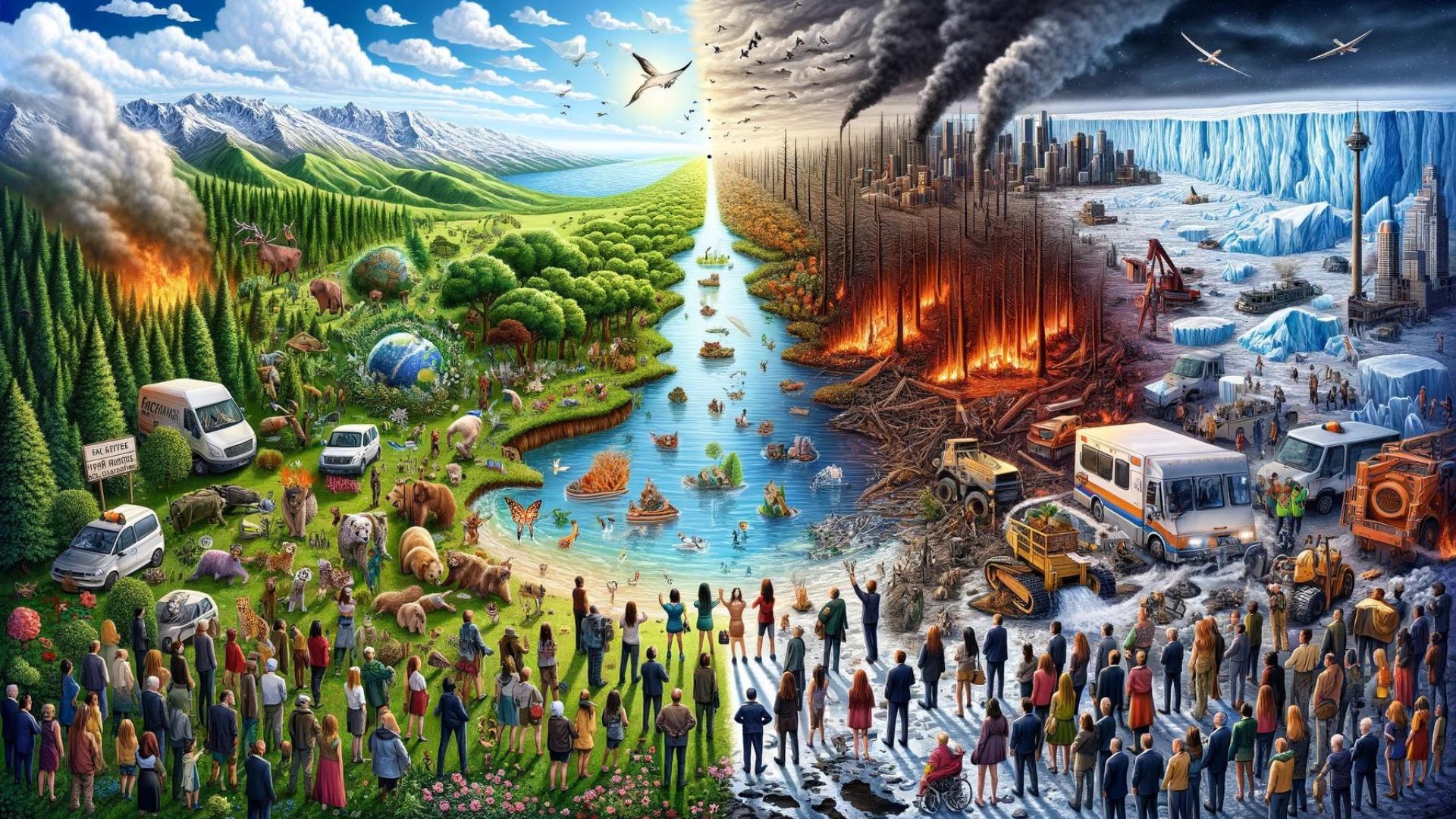- Climate Change: The Questions on Everyone’s Mind
- What’s the deal with climate change, really?
- Is climate change really caused by humans?
- What’s the difference between weather and climate?
- What can I do as an individual?
- Taking Action – It Starts with You
- Why Should You Care?
- Key Takeaways
- Keywords
- Myth Buster
- Let’s Talk!
Climate Change: The Questions on Everyone’s Mind
Climate change is a monumental challenge, and it can be overwhelming to separate fact from fiction. Understanding the issue is critical, but it’s hard to know where to start with so much information (and misinformation) swirling around. That’s why we’re tackling your most pressing climate change questions head-on.
What’s the deal with climate change, really?
Our planet’s climate is naturally variable, but what we’re seeing now is unprecedented warming driven mainly by human activities – releasing heat-trapping greenhouse gases when we burn fossil fuels. This excess heat throws our Earth’s systems out of whack, causing cascading effects:
- Extreme weather: Intense heat waves, droughts, floods, and wildfires become more frequent and devastating.
- Rising sea levels: Melting ice caps and glaciers add water to the oceans, threatening coastal communities and islands.
- Disrupted ecosystems: Plant and animal life struggle to adapt as habitats and food sources shift, leading to species extinctions.
Is climate change really caused by humans?
Yes, the scientific consensus is overwhelming. Climate data, historical patterns, and our understanding of how greenhouse gases work make a clear case: human activities are the main driver of the changes we’re seeing.
What’s the difference between weather and climate?
Weather is what’s happening outside right now – it’s short-term and variable. Climate refers to long-term trends and patterns over decades or centuries. One unusually cold winter doesn’t disprove global warming – it’s crucial to focus on the big picture.
What can I do as an individual?
While systemic change is key, your actions matter. Making conscious choices can directly and indirectly make a difference:
- Reduce energy use: Conserve electricity at home, opt for energy-efficient appliances, and consider renewable options.
- Smart transportation: Choose walking, biking, or public transport when possible. If you drive, consider a fuel-efficient or electric vehicle.
- Support sustainable practices: Choose businesses committed to eco-friendly practices, reducing waste, and supporting climate solutions.
Taking Action – It Starts with You
Knowledge is power. Now that you’re armed with reliable answers, use this information for good: make informed choices, challenge misinformation, and hold leaders accountable. Climate change demands bold action, and your voice matters – let’s build a better future, together.
Why Should You Care?
- Climate change affects you directly: Whether it’s through extreme weather, disruptions to food supply, or threats to your health, climate change is not a distant issue. Understanding it means understanding threats to your wellbeing.
- Your choices have an impact: Our collective actions influence the trajectory of climate change. Being informed empowers you to make choices that support a healthier planet.
- Our future depends on it: Today’s decisions influence the world we leave for future generations. Knowing the facts helps you fight for the solutions needed to ensure a sustainable future.
Key Takeaways
- Climate change is real, human-caused, and its effects are already being felt.
- Climate and weather are different: weather is variable, climate is the long-term trend of warming.
- Individual actions matter: your choices contribute to climate solutions.
- Reliable information is essential to tackle the climate crisis effectively.
Keywords
- Climate change: Long-term shifts in global or regional temperature and weather patterns, primarily driven by human activities.
- Greenhouse gases: Gases like carbon dioxide (CO2) and methane that trap heat in the atmosphere, leading to a warming planet.
- Fossil fuels: Coal, oil, and natural gas – non-renewable sources of energy that release large amounts of greenhouse gases when burned.
- Extreme weather: Unusually severe or unseasonal weather events like heat waves, droughts, hurricanes, and floods, intensified by climate change.
- Sea-level rise: The increase in average global sea level caused by melting ice sheets and warming ocean waters.
- Sustainability: Meeting present needs without compromising the ability of future generations to meet their needs – environmental, social, and economic balance.
- Renewable energy : Energy sources like solar, wind, and hydropower that replenish naturally and have low carbon emissions .
- Carbon footprint: The amount of greenhouse gases released due to the activities of an individual, organization, or product.
- Climate action: Efforts to reduce greenhouse gas emissions and mitigate the impacts of climate change.
- Scientific consensus: Overwhelming agreement among scientists on a particular issue, like the cause of climate change.
Myth Buster
- Myth: Climate change is a hoax or a conspiracy.
- Reality: Multiple independent lines of evidence converge on the fact that climate change is real, human-caused, and demands action.
Let’s Talk!
- What climate change impacts have you noticed in your local area?
- Do you think governments and corporations are doing enough about climate change? Why or why not?
Share your thoughts and let’s keep the conversation going!










0 Comments